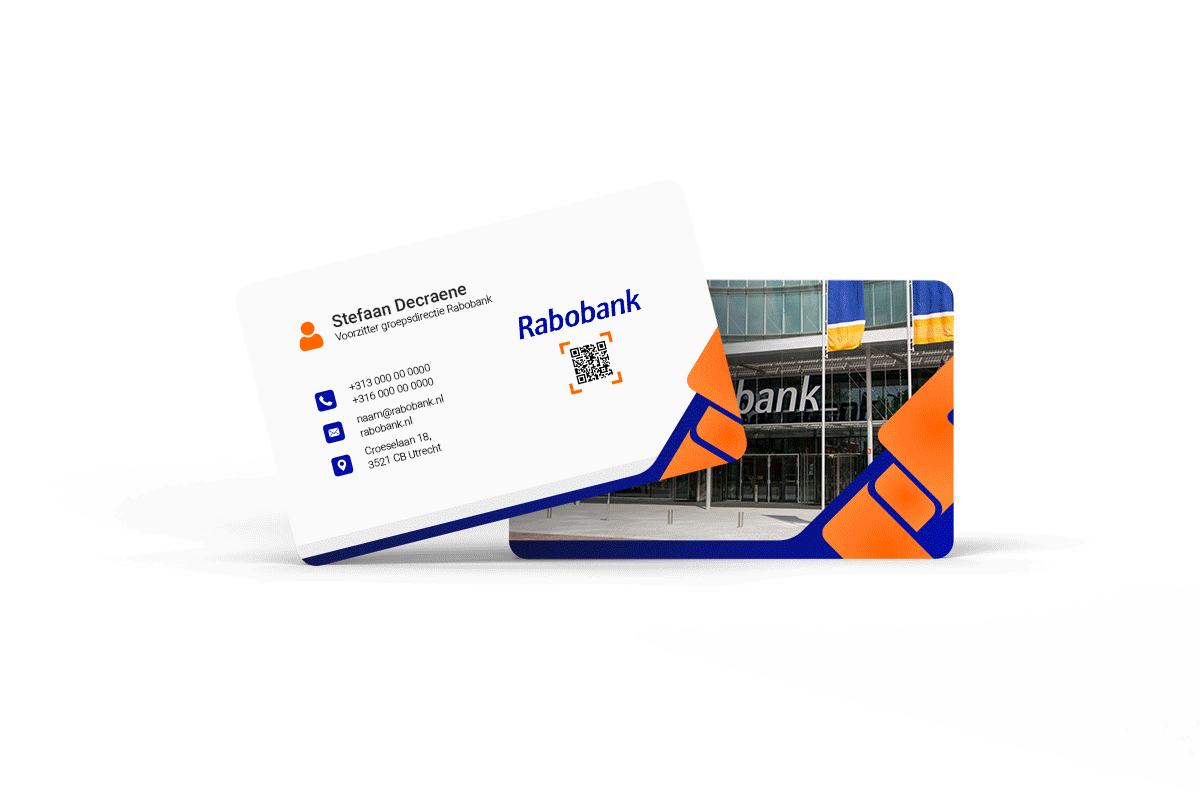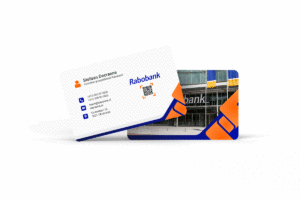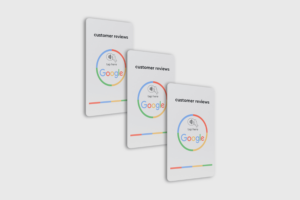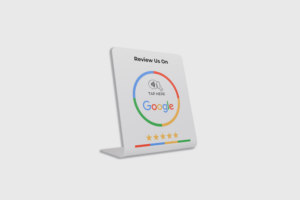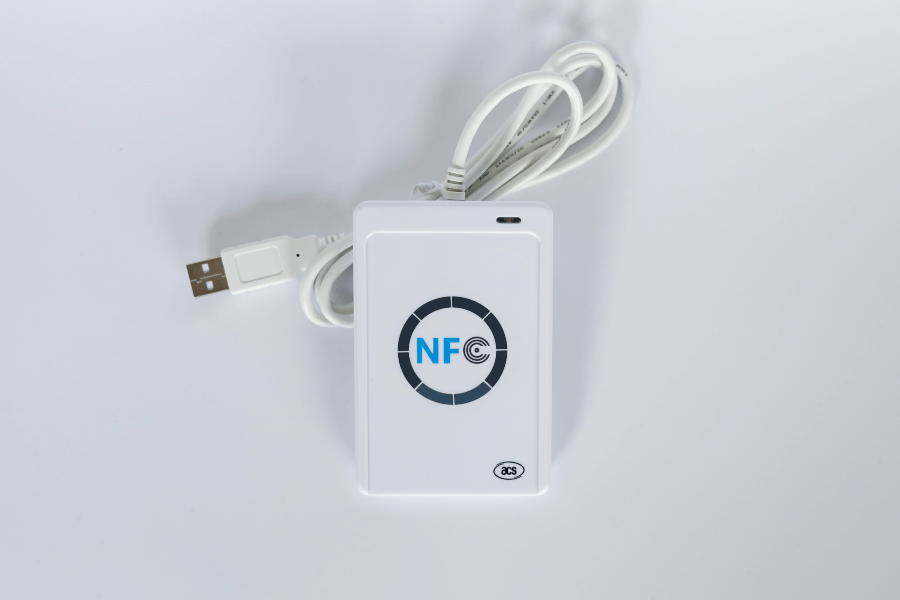No products in the cart.
NFC Products
Review products
Shopping Cart
Internal and external communication: what's the difference?

Communication plays a crucial role in any business, whether large or small. Without good communication, everything goes haywire, from internal processes to customer relations. But what many companies struggle with is distinguishing between internal and external communication. In this blog, we'll discuss the difference between the two, why it's important to get them both right, and how to use them to make your business more successful.
Table of contents
What is internal communication?
Internal communication is the exchange of information within a company or organization. It is about how employees, teams and departments communicate with each other. These communications can range from simple emails and meetings to extensive reports and policy communications. The goal is to make sure everyone is on the same page and working together efficiently.
Internal communication is about more than just conveying information. It is also about building a healthy company culture and making sure employees feel heard and valued. Good internal communication ensures that everyone knows what his or her role is, what goals are being pursued and how successes can be achieved.
What is external communication?
External communication is all communication that goes outward, that is, with people or companies outside your organization. These may be customers, suppliers, partners, stakeholders or the general public. The purpose of external communication is to give a positive impression of your company, build relationships and support business objectives.
External communication is the way you present your company to the outside world. It often determines how your company is perceived and can have a major impact on reputation. A clear and consistent message ensures that your customers know exactly what to expect from you.
The importance of strong internal communication
Strong internal communication is the foundation for a healthy company. If employees feel well informed, they will be more productive and motivated. They know what is expected of them and how their work contributes to the bigger picture. This leads not only to better performance, but also to a better work atmosphere.
In addition, effective internal communication helps resolve problems quickly. Instead of misunderstandings piling up, they can be addressed early, preventing conflict. Companies with good internal communication often experience less employee turnover because people feel heard and understood.
Why is external communication important?
External communication is essential to a company's success because it determines how you are perceived by the outside world. A well-organized external communication shows that you are professional, reliable and customer-oriented. Whether you are advertising, sending out press releases or simply sending an e-mail to a customer, every form of external communication should be consistent with your company's core values.
Strong external communication creates more customers, better relationships with suppliers and a stronger market position. Moreover, it allows you to position your brand in a positive way that makes it stand out among competitors.
The danger of poor internal and external communication
If internal communication does not run smoothly, problems will quickly arise. Employees don't know where they stand, misunderstandings pile up, and the work atmosphere can turn to frustration. In extreme cases, this can lead to high employee turnover because people simply become frustrated with the lack of clarity and cooperation.
Poor external communication can affect your business in a negative way. Think, for example, of unclear messages in your marketing campaigns or a poor response to a customer complaint. In today's age where information can spread at lightning speed through social media, one misstep can quickly lead to reputation damage that is difficult to recover from.
How internal and external communications reinforce each other
Although internal and external communications are two different disciplines, they do reinforce each other. A company that communicates well internally can respond more quickly and effectively to external communication challenges. For example, if there is a PR crisis, it is important that all employees are immediately aware of the situation and know how to respond.
In addition, strong internal processes can lead to better external communications. When all teams and departments are well aligned, marketing campaigns, customer contacts and business deals can run more smoothly.
Another important aspect is consistency. When internal and external communications are aligned, your message as a company comes across much stronger. Internal communication ensures that employees know exactly what the company wants to project to the outside world. External communication then ensures that that message reaches the public clearly.
Tips for better internal and external communication
1. Use the right tools.
There are countless tools available today that can help you with both internal and external communications. Consider project management tools like Trello for internal processes and social media management tools like Hootsuite for external communications.
2. Stay consistent in your message.
Make sure that what is communicated internally matches what is communicated externally. This ensures a unified image of your organization.
3. Give employees a voice.
Listen to your employees' feedback. They often know better than anyone else what goes wrong in internal communication. By taking their feedback seriously, you can avoid problems.
4. Set clear goals.
Whether for internal or external communication, always set clear goals. What do you want to achieve with this message? What should the recipients do with it?
5. Be transparent.
Both internally and externally, transparency is crucial. Employees want to know what is going on within the company and customers want honesty. This builds trust in both directions.
Improve external communication with NFC World
Internal communication is very important for keeping business processes running smoothly and maintaining a healthy work atmosphere. But external communication is just as crucial, as it determines how your company is perceived by the outside world. Strong external communication builds trust with customers and partners and strengthens your brand. A smart tool to improve your external communication is NFC World's digital business cards. With this innovative solution, you share your contact details quickly and professionally, ensuring a lasting, positive impression. It has never been easier to follow up on leads thanks to automatic follow-up.
View our NFC Business CardsDon't miss anything and read all about NFC
Our most popular products
Reviews
★★★★★
Very satisfied with the serviceThe NFCW passes are a great example of how to use Sustainable Technology and still make an impact. We are very pleased with the service and quick response times.
Vera Timmermans - Evoke Staffing★★★★★
Quick response to inquiriesQuick response to questions. The dashboard is clear and easy to manage.
Shui Yi van de Laar - Endenburg Electrical Engineering★★★★★
Good price quality & Excellent serviceGood value for money & excellent service. Tickets were lost by mail but a solution was worked out together.
Bjorn Andelhofs - Topcon Positioning★★★★★
Very customer friendlyGood communication and fast service. Very customer friendly, and the site is easy and clear.
Astrid van Heinsbergen - HG International★★★★★
Very satisfied!We are very satisfied with our NFC business cards from NFC World. The dashboard is user-friendly and the cards are easy to use.
Natacha Wuestman - Wuestman★★★★★
The cards work easily and very wellThe cards work easily and very well. This way we are more sustainable, because we do not have to order 100's of paper business cards for our colleagues.
Eva Hartman - Lycens BVGive 20%, Get 20% 🎁
Give your friends 20% off their next order. And we'll give you 20% off for every successful referral.
Invite friendsAll our products are subject to our terms and conditions. All prices include VAT and other taxes and exclude any shipping and service charges. You can read how we handle cookies in our privacy policy.

